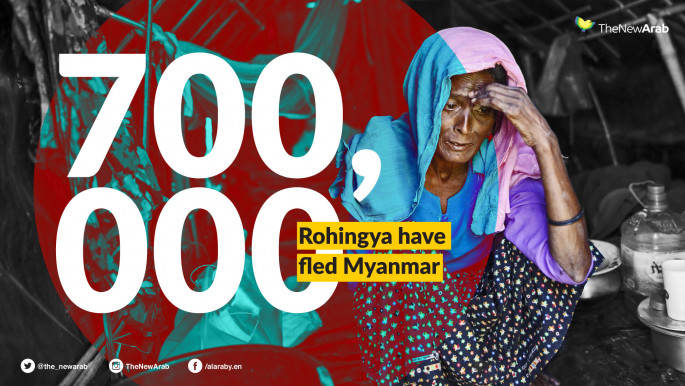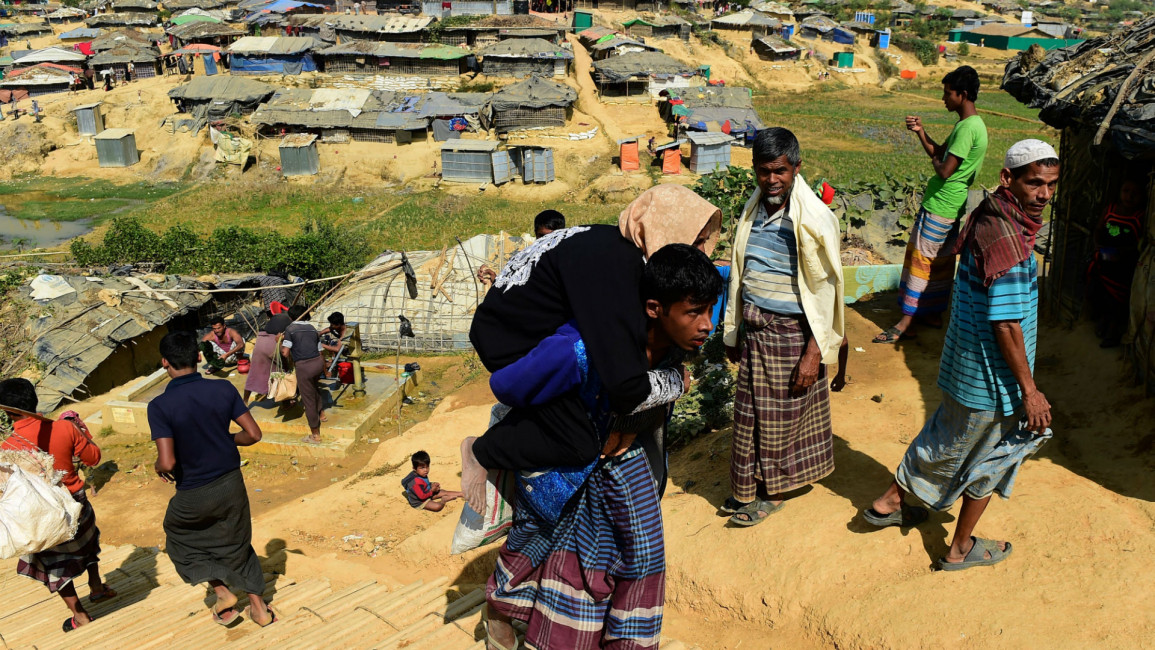Bangladesh slams Myanmar repatriation claims as 'nothing but a farce'
Myanmar's government said this weekend it has repatriated the first family of Rohingya refugees.
But on Monday, Bangladesh's home minister, Asaduzzaman Khan, said Myanmar's claim that the family had been "repatriated" was false, noting that the family had never reached Bangladeshi territory.
Khan said Myanmar's move was "nothing but a farce".
"I hope Myanmar will take all the Rohingya families back within the shortest possible time," he said.
According to a Myanmar government statement posted late on Saturday, one family of refugees became the first to be processed in newly built reception centres earlier in the day.
"The five members of a family... came back to Taungpyoletwei town repatriation camp in Rakhine state this morning," said a statement posted on the official Facebook page of the government's Information Committee.
The statement added that authorities had verified whether the family lived in Myanmar and provided them with a national verification card - a form of ID, but not citizenship.
The post did not mention plans for further returnees expected in the near future.
Bangladesh's refugee, relief and repatriation commissioner, Abul Kalam, said the Rohingya family involved had never crossed the border.
"By no definition can this be called repatriation," he said by phone from Cox's Bazar. "No repatriation has taken place. Bangladesh is no way part of it."
The family had been living in a camp erected on a patch of "no man's land" between the two countries. Several thousand Rohingya have been living in the zone since August, crammed into a cluster of tents beyond a barbed-wire fence which roughly demarcates the border zone between the two countries.
"A public relations exercise"
Andrea Giorgetta from the International Federation for Human Rights (FIDH) blasted the repatriation announcement as "a public relations exercise in an attempt to deflect attention from the need for accountability for crimes committed in Rakhine State".
The UN and other rights groups have warned that a mass repatriation of Rohingya would be premature, as Myanmar has yet to address the systematic legal discrimination and persecution the minority has faced for decades.
Bangladesh and Myanmar vowed to begin repatriation in January but the plan has been repeatedly delayed as both sides blame the other for a lack of preparation. More than 8,000 refugees are waiting for repatriations according to a list compiled by Bangladesh.
Some 700,000 Rohingya Muslims have fled over the border to Bangladesh since August to escape a bloody military crackdown that has left a trail of torched villages in its wake as refugees allege murder and rape by Myanmar's armed forces.
The army denies the allegations and casts its campaign as a legitimate response to Rohingya militant attacks on August 25 that killed about a dozen border guard police.
Myanmar brands the Rohingya as illegal immigrants from Bangladesh, denying them their belonging to the Buddhist-majority country. It has systematically dismantled their legal rights and access to basic services in Rakhine, a state where many have lived for generations.



